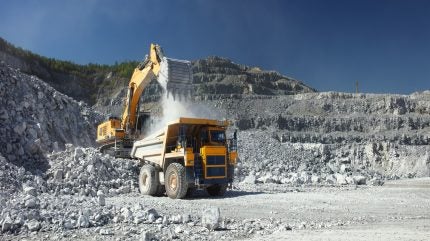Sign up for daily news updates from CleanTechnica on email. Or follow us on Google News!
Yesterday brought news that most of the major fossil fuel countries and companies have reached an agreement at the COP 28 climate conference in Dubai to significantly reduce their methane emissions. Since methane is such a powerful greenhouse gas, keeping it from leaking into the atmosphere during production or while being transmitted from place to place is a big deal. In fact, it is such a big deal, that the agreement, once implemented, could prevent up to a half degree Celsius of future climate heating.
Phase Down Vs. Phase Out At COP 28
While that is good news, the real question at COP 28 is what to do about fossil fuels? There are more than 70,000 people attending the conference from all around the world. They all speak many languages, but the official language of the proceedings is English. Every discussion must begin with a definition of terms. Otherwise, people will talk past each other and no progress will be made.
The main topic of discussion in Dubai is whether to prioritize a phase out of fossil fuels — in other words, stop burning coal, oil, and methane gas altogether as quickly as possible — or phase down the use of fossil fuels — which suggests putting them on a glide path that will see their use reduced over time while preserving the profits that flow from extracting and marketing them.
just how much of a difference there is between the two concepts was made clear in late November during an online interview by Mary Robinson, the chair of the Elders group and a former UN special envoy for climate change, with Sultan Al Jaber, the president of COP 28. At times, the conversation got downright testy. According to The Guardian, here is a portion of the exchange:
Robinson: “We’re in an absolute crisis that is hurting women and children more than anyone … and it’s because we have not yet committed to phasing out fossil fuel. That is the one decision that Cop28 can take and in many ways, because you’re head of Adnoc, you could actually take it with more credibility.”
Al Jaber: “I accepted to come to this meeting to have a sober and mature conversation. I’m not in any way signing up to any discussion that is alarmist. There is no science out there, or no scenario out there, that says that the phase-out of fossil fuel is what’s going to achieve 1.5C.”
Robinson: “I read that your company is investing in a lot more fossil fuel in the future.”
Al Jaber: “You’re reading your own media, which is biased and wrong. I am telling you I am the man in charge. Please help me. Show me the road map for a phase out of fossil fuel that will allow for sustainable socioeconomic development, unless you want to take the world back into caves. I don’t think [you] will be able to help solve the climate problem by pointing fingers or contributing to the polarization and the divide that is already happening in the world. Show me the solutions. Stop the pointing of fingers. Stop it.”
Having spent a little time in Dubai, I can report that there is a pervasive attitude of male dominance that is woven into the culture, This exchange carries more than a hint of a powerful Arab male mansplaining to a woman how things are and always will be.
COP 28 And Climate Science
Despite Al Jaber’s angry outburst about climate science, many others disagree. On December 1, 2023, UN Secretary General António Guterres told the COP 28 delegates, “The science is clear. The 1.5ºC limit is only possible if we ultimately stop burning all fossil fuels. Not reduce, not abate. Phase out, with a clear time frame.”
Bill Hare, the chief executive of Climate Analytics, said: “This is an extraordinary, revealing, worrying and belligerent exchange. ‘Sending us back to caves’ is the oldest of fossil fuel industry tropes: it’s verging on climate denial. Al Jaber is asking for a 1.5ºC road map. Anyone who cares can find that in the International Energy Agency’s latest net zero emissions scenario, which says there cannot be any new fossil fuel development. The science is absolutely clear [and] that absolutely means a phase out by mid-century, which will enhance the lives of all of humanity.”
David King, the chair of the Climate Crisis Advisory Group and a former UK chief scientific adviser, told The Guardian, “It is incredibly concerning and surprising to hear the COP 28 president defend the use of fossil fuels. It is undeniable that to limit global warming to 1.5ºC we must all rapidly reduce carbon emissions and phase out the use of fossil fuels by 2035 at the latest. The alternative is an unmanageable future for humanity.”
Dr Friederike Otto, of Imperial College London rejected the claim that fossil fuels were necessary for development in poorer countries, saying that the latest report from the Intergovernmental Panel on Climate Change “shows that the UN’s sustainable development goals are not achievable by continuing the current fossil-driven high emission economies. [There are] massive co-benefits that come with changing to a fossil-free world.”
To Abate Or Nor To Abate. That Is The Question
Bill McKibben wrote on December 2, 203 on Substack, “Unabated — A single word can derail climate progress.”
It’s abundantly clear that coal, oil and gas are breaking the climate system. It’s also abundantly clear that the people who own coal, oil, and gas reserves don’t care. In an effort to keep burning them, so they can continue to collect the returns, they propose building vast engineering projects alongside fossil-fuel generating plants, to capture the carbon dioxide from the exhaust stream. That is, they want to “abate” the damage of their product.
It doesn’t really work. One attempt after another has been abandoned and Stanford’s Mark Jacobson has shown why in a series of seminal papers. As the New York Times explained earlier this year, “after taking into account the energy used to capture and isolate CO2 from flue gas at a fossil fuel-burning industrial plant, the carbon capture system would reduce the plant’s net emissions by only 10 to 11 percent, not the estimated 80 to 90 percent cited by proponents.”
But even if you could physically make it work it would still be absurd, at least on our planet, which in 2023 has figured out how to cheaply capture the power of the sun to produce energy. If coal or gas fired power is already considerably more expensive than solar energy, imagine what happens to that cost differential if you add an enormous complex of pipes and pumps to take the CO2 and pump it off to some abandoned salt mine for storage.
In fact, the cost of doing this is so prohibitive that no coal or oil or gas company or utility wants to pay for it themselves. Instead, they use their political power to make taxpayers foot the bill so they can keep selling their product. In order to secure Joe Manchin’s vote for the Inflation Reduction Act, Biden had to lard it with billions of dollars in funding for this particular boondoggle.
And now the industry is using COP 28 to try and enshrine this escape hatch permanently. Activists have been demanding a fossil fuel phase out, but the power brokers — US climate envoy John Kerry chief among them — have been offering instead a phase out of “unabated” fossil fuel. In April, as Reuters reported, “the Group of Seven industrialized nations, which includes the United States, agreed to speed up the “phase-out of unabated fossil fuels,” and four days ago he repeated the phrase, saying this time he had China on board with the plan.
One sympathizes with the former Secretary of State, at least to a degree. He’s trying to swing a deal that can include powers like the UAE, the Saudis, and the United States, all places where Big Oil is immensely politically powerful. But the deal’s not worth it if it sets us on a path of pretending we can economically capture the emissions from these fossil fuels. In a rational world — one where political power was not determinative — we’d be spending every penny we had on solar panels, wind turbines, and batteries. Because they’re cheap, and because they don’t produce emissions that you then have to pretend you’re capturing.
The point of the COP — the point of all climate efforts — should not be to produce a deal. Let me repeat myself. The point of climate negotiations should not be to produce a deal, no matter how many pixels are spilled about that prospect over the next two weeks. It’s to stop the flow of greenhouse gases into the atmosphere. And Guterres is right. There’s one way to do that and it’s renewable energy. Phase out fossil fuels period, and stat. Everything else is just smoke.
The Lie At The Heart Of Every Climate Summit
Bill McKibben references Jeremy Symons, the veteran energy analyst, who wrote this week that this endless sucking up to fossil fuel is enshrined in the whole climate negotiation process, ever since its first iteration at Rio in 1992 when delegates “described ‘fossil fuel production, use and exportation’ as an economic necessity. That unworkable deal has mapped the course of ineffectual climate talks for the past three decades. Lofty climate ambitions could be announced as long as the agreements do not interfere with the fossil fuel industries at the heart of the problem.”
Semantics — it’s how people avoid taking meaningful action by playing word games instead of doing the hard work needed ro get stuff done. There are millions of words flowing out of Dubai as COP 28 progresses, but none as important as whether the conference will call for a phase out or a phase down of fossil fuels and whether it will make abatement of carbon emissions a cornerstone of its recommendations.
As Bill McKibben points out, those simple words could spell the difference between a sustainable Earth or a planet that no longer can support human life as we know it. That’s a heavy burden to place on a few simple words.
Have a tip for CleanTechnica? Want to advertise? Want to suggest a guest for our CleanTech Talk podcast? Contact us here.
CleanTechnica Holiday Wish Book
Our Latest EVObsession Video
I don’t like paywalls. You don’t like paywalls. Who likes paywalls? Here at CleanTechnica, we implemented a limited paywall for a while, but it always felt wrong — and it was always tough to decide what we should put behind there. In theory, your most exclusive and best content goes behind a paywall. But then fewer people read it!! So, we’ve decided to completely nix paywalls here at CleanTechnica. But…
Thank you!
CleanTechnica uses affiliate links. See our policy here.





